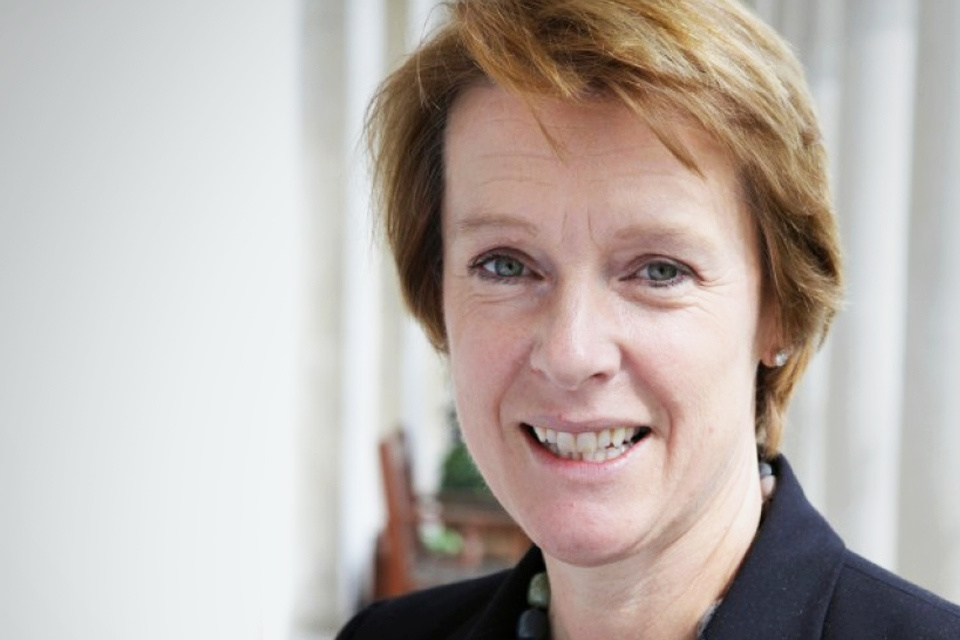Caroline Spelman’s speech at the RSPB campaign launch
Thank you, Mike, and thanks to all RSPB members for the work you’ve done so far to step up for nature.

Thank you, Mike, and thanks to all RSPB members for the work you’ve done so far to step up for nature. You’ve been making the case for protecting the environment for over a century. You have a strong voice. It came through loud and clear in all the RSPB responses to our Natural Environment White Paper. And you certainly sang out very strongly during the spending review! Your voice is strong - and it’s invaluable.
As are your relationships with communities, land managers and local authorities. Building the partnerships we value so much. We all want to protect nature.
The level of public interest shows through in the massive viewing figures that nature programmes attract. And in the hundreds of thousands of people who take part in events like the Big Garden Birdwatch each year. We need to harness this enthusiasm. Because we also need to protect nature.
As our White Paper will make clear, nature’s value underpins our whole society. It brings benefits to every community - physical, emotional, educational and economic. Benefits that are shown in Pavan Sukhdev’s work on the economics of ecosystems and biodiversity. Benefits that are already understood by business; and I saw this at our Green Economy Council, when 12 chief executives all spontaneously cited sustainability as their biggest challenge. Benefits that are now understood across the world.
After Cancun, getting a deal at Nagoya was remarkable for the political will it took. It showed that the international community is no longer prepared to accept the ongoing destruction of the natural world. Nagoya lays down the gauntlet. It demands action. By all of us. In all areas of life.
In our new strategy for biodiversity in England we’ll be setting out how to respond to our Nagoya commitments. We must learn the lessons of the past; and set realistic, measurable targets. And in these hard times, we need to be innovative and cost-effective. At the same time we need a step change in our approach. We need to move beyond organisational and geographical boundaries. To stop separating land use into boxes - agricultural, residential, commercial - and take a holistic view. All of our land, rural and urban, must be better managed, and better connected. The RSPB is already making great strides here.
Thames Gateway Parklands is part of your Greater Thames Futurescape. Through match funding, the government investment of £32m has risen to nearly £70m. The first phase of the programme has delivered improved SSSIs, more green space, better flood risk management, visitor facilities - and new jobs. The next phase will join up these sites with surrounding rural farmland, establishing the green infrastructure and ecological connections described in the Lawton report. We want to encourage these new approaches. Our Natural Environment White Paper will explore how we can do this.
One way will be to help ordinary people to protect nature. Thousands of individuals walk past the same neglected area each day - but there will be some who see its potential. Who will recognise it as a piece of natural capital; that, if nurtured properly, could return huge benefits to the community. And this is where you and your members come in: spotting the areas, galvanising communities, linking up with groups in other areas. This is where the Big Society makes a difference: helping to build these stepping stones and wildlife corridors that Lawton talks about - for the benefit of the country
A huge amount of conservation work is already carried out by volunteers around the country, from beach cleaning to tree planting to bird surveying. Major conservation charities together have over 5 million members and over 700,000 active volunteers. Our research shows conservation volunteering has increased by 50% over the past decade. This trend shows how much people want to make direct and tangible improvements to the environment. Not only do volunteers deliver conservation action on the ground, they also play a key role in monitoring habitats and species, and in advising on their management.
Take the British Bird Survey. Impossible without the 2500 volunteers, who each put in about 9 hours of work (travel, survey and data entry) each year - adding up to 22,000 hours of work overall. Bird monitoring schemes like this one are the envy of other countries. High quality data, contributing to a long historical run of data, available for a wide variety of species, and for most parts of the UK.
Alongside the volunteers are the professionals: the farmers and land managers who want to do their bit. Last summer you were on our backs about the HLS. But in our Spending Review we came good. Total spend on HLS will increase by at least 80% over the next three years. We see this as key to greening the CAP.
We need farmers to do even more to encourage biodiversity and protect the environment. And we want you to help them. We’re exploring the ways of using your passion and expertise. It might be setting up a network of volunteers to help farmers achieve the most from Environmental and Higher Level Stewardships.
We know it can be done. Look at your own Volunteer and Farmers Alliance. It’s surveyed over 5000 farms since it started in 1999. By working together with farmers you can help us gather the information to monitor how Stewardships are performing. And if they’re not working, you can help us make the changes that are needed.
I want Defra to be the department that brings people and nature together, helping communities to look after our treasured species and habitats. Land managers, NGOs and conservation groups are all key to success. We need to work together to protect the gains we’ve made - and keep going.
So, congratulations on this great new campaign; and I look forward to working with you all.